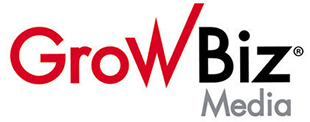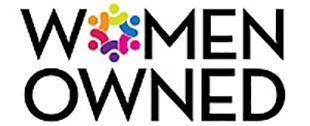June’s Pride month comes with increased economic, social, and cultural consequences for the LGBTQIA+ community. In this challenging landscape, businesses that want to signal their support for the queer community need to go beyond a rainbow logo and embrace an authentic, year-round commitment to inclusivity. This is not just because it is the right thing to do, but also because it can be a fundamental driver of business success.
By embracing diversity in all its forms and cultivating an inclusive culture, companies unlock a multitude of advantages, such as enhanced employee engagement, improved talent attraction and retention, increased innovation and creativity, expanded market reach, and a stronger reputation. But to realize these benefits, businesses must go beyond surface-level statements of commitment and performative gestures, prioritizing a comprehensive and sustained approach to inclusivity.
True inclusivity is a journey, not a destination and to be successful, this work has to permeate through everything you do as a company. From embracing inclusive language in your marketing, to ensuring your building offers gender-neutral restroom facilities, to eliminating unconscious bias in hiring and promotional practices, to improving physical and digital accessibility, there are limitless opportunities to evolve.
Inclusivity is inherently intersectional, as it recognizes that individuals have multiple social identities that intersect and influence their experiences. It acknowledges that people can face overlapping forms of discrimination and marginalization based on factors such as race, gender, sexual orientation, disability, and more. By embracing intersectionality in your approach to inclusivity, you can create environments that truly value and uplift the diverse lived experiences of all individuals.
This involves acknowledging and addressing the unique challenges and needs that arise at the intersections of different identities, fostering a culture of empathy, actively seeking diverse perspectives, and implementing inclusive policies and practices that consider the diverse range of experiences within our communities and organizations. Embracing intersectional inclusivity allows you to build more equitable, empowering, and enriching spaces where everyone feels seen, heard, and valued.
Celebrating Pride and other awareness months should transcend mere symbolism. Instead, this recognition should be a mirror to the collective actions you undertake as a unified community throughout the year. As a business, this necessitates not just general awareness of global and local issues affecting your employees, but in the face of increasing discrimination, active denouncement of hate and violence. It requires thoughtful and responsible support for the communities you serve. Businesses need to recognize the deep significance of Pride, Black History Month, and other events beyond their designated days in the calendar and move beyond superficial acts to foster a culture of acceptance year-round. As you build out your DEIB strategy, consider the following:
Collaborating with Employee Resource Groups (ERGs):
Employee Resource Groups dedicated to LGBTQIA+ employees are invaluable assets not only for organizing killer Pride events, but also for shaping your organization’s handbook, policies, and programs that support the queer community year-round. Strengthening these networks and ensuring they have the budgets, executive support, and visibility they need to make an impact can drive employee engagement and retention.
Celebrating Pride Beyond the Month:
While Pride month serves as an important commemorative moment, it is vital to extend your celebration of LGBTQIA+ identities and achievements throughout the year. Organize events, workshops, and training sessions that educate employees and foster understanding and allyship across the company. By maintaining an ongoing commitment to inclusivity, you reinforce the message that support for the LGBTQIA+ community is not limited to a single month.
Raising Awareness and Education:
Host educational sessions, panel discussions, and guest speaker events to promote dialogue and understanding among employees. Encourage open conversations about real-life LGBTQIA+ experiences, but do not require the community to shoulder the burden of this work alone. Ongoing education helps dispel stereotypes, challenge biases, and create a more inclusive work environment, but it can also put pressure on LGBTQIA+ employees to do the heavy lifting when it comes to the work itself. Instead, leverage the resources of the organization to encourage open dialogue, promote empathy, and allow for continuous learning and growth.
Engaging in Community Support:
True support for the LGBTQIA+ community extends beyond the workplace. Encourage employees to participate in local community outreach programs, or volunteer initiatives that directly benefit LGBTQIA+ organizations, and consider how these organizations for within your charitable giving and CSR programs. By actively engaging with the wider community, companies demonstrate their commitment to creating positive change.
Providing Resources:
Ensure that employees have access to resources and support systems that cater to LGBTQIA+ individuals. This includes offering mental health resources, gender-affirming healthcare, allyship training, and inclusive parental leave policies. Creating a safe and supportive environment encourages LGBTQIA+ employees to thrive and contributes to overall company success.
Continuously Evaluating and Improving:
Regularly assess the impact and effectiveness of cause-specific events and inclusion initiatives. Seek feedback from employees, gather data on participation rates, and assess the overall impact on company culture. This can improve accountability, help attract top talent, and enhance the organization’s reputation as a socially responsible entity.
By going beyond Pride month and fostering a culture of acceptance year-round, companies can create an environment where all employees feel valued, respected, and celebrated. Continuously providing support, creating safe spaces, and implementing inclusive policies can help you make a lasting impact on your employees and organizational culture. In making inclusivity a fundamental part of your values and practices, you can create a foundation for long-term success, where everyone can thrive and contribute their unique perspectives. Embracing the enduring journey of inclusivity is not only the right thing to do, but it is also a strategic imperative for organizations aiming to unlock their full potential and drive sustainable growth in an increasingly diverse and interconnected world.
Sarah Reynolds is an award-winning B2B SaaS marketing expert and proud architect of high-performing teams. A committed advocate for inclusive, people-centric growth strategies, Sarah has over 10 years’ experience shaping & leading global marketing programs that deliver transformative results for modern companies. Sarah Reynolds (they/them) CMO at HiBob. @fairpaymonster
Sarah is openly queer, trans and non-binary and is keen to dispel hurtful stereotypes often associated with this group and the wider LGBTQIA+ community. Using their leadership position as a platform, Sarah is passionate about the use of inclusive language as a way to call out unconscious bias and dismantle the barriers impacting people’s sense of belonging and access to opportunities.



